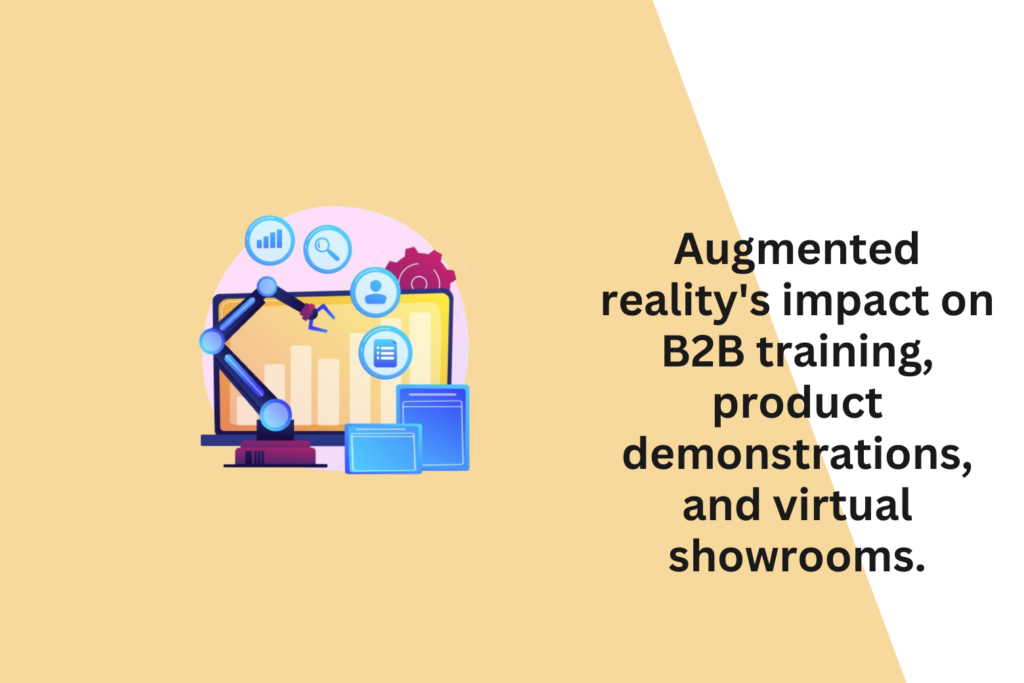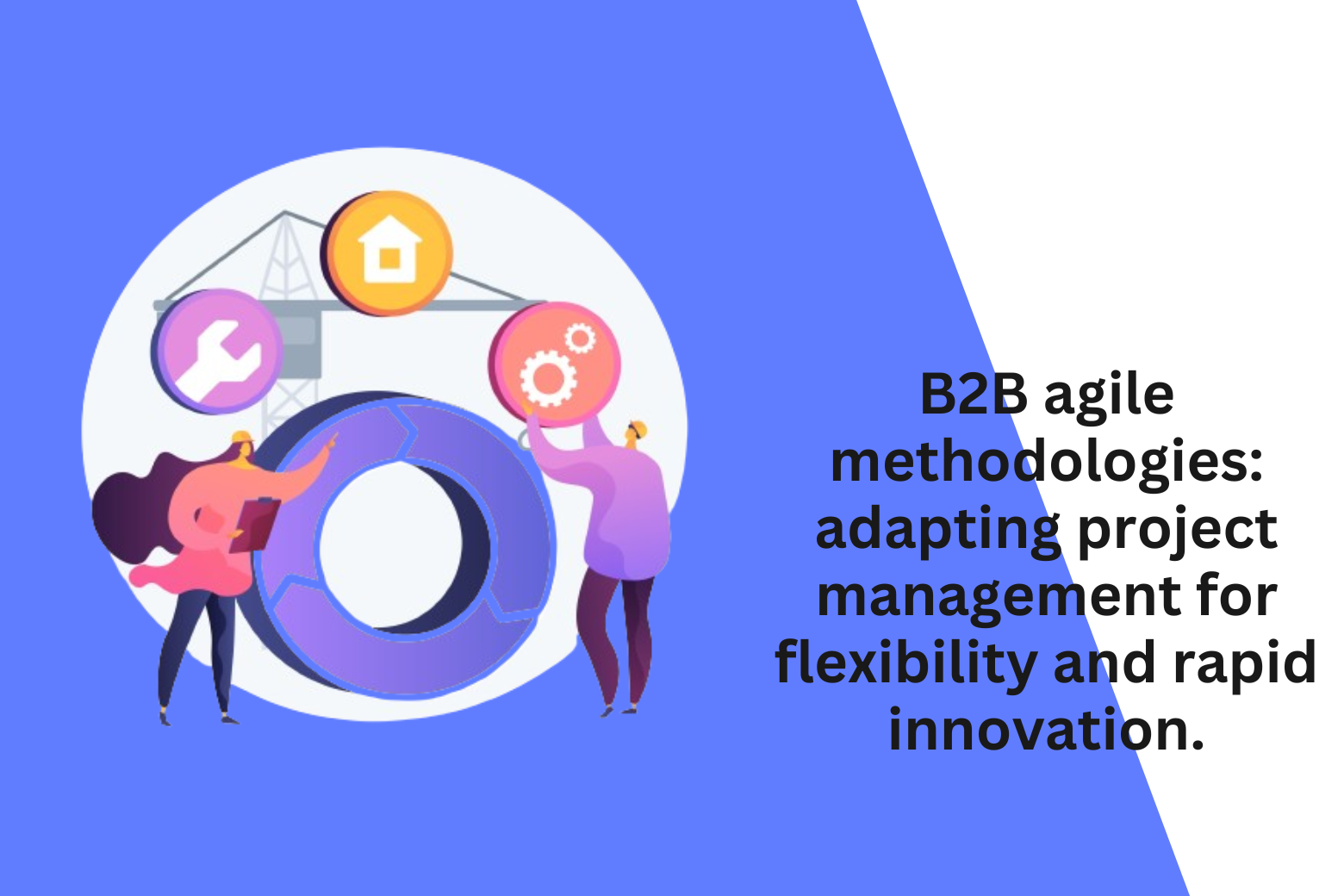
Augmented reality (AR) has a transformative impact on B2B (business-to-business) industries, particularly in the areas of training, product demonstrations, and virtual showrooms. Here’s an exploration of how AR is influencing these aspects:
1. B2B Training:
Hands-On Training Simulations:
- AR allows for the creation of immersive and interactive training simulations. Employees can engage in hands-on training experiences without the need for physical equipment. This is particularly valuable in industries with complex machinery or intricate processes.
On-the-Job Guidance:
- AR applications provide real-time, on-the-job guidance to employees. Through AR-equipped devices, workers can access information, instructions, and step-by-step guidance overlaid on their physical workspace, enhancing their efficiency and reducing the likelihood of errors.
Remote Assistance:
- AR enables remote assistance by connecting experts with on-site personnel. Through AR glasses or mobile devices, remote experts can provide visual guidance, annotations, and instructions to employees in the field, improving problem-solving and reducing downtime.
Product Maintenance and Repair:
- In industries where equipment maintenance is critical, AR can guide technicians through maintenance and repair procedures. AR overlays can highlight components, provide repair instructions, and offer visual cues for tasks, leading to more effective and accurate maintenance.
2. Product Demonstrations:
Interactive 3D Demonstrations:
- AR allows for the creation of interactive 3D models of products. During demonstrations, B2B sales teams can use AR applications to showcase products in a virtual space. Customers can interact with the virtual models, view details, and explore product features in a more engaging way.
Customization and Visualization:
- AR enhances the customization and visualization of complex products. Customers can use AR apps to visualize how a product will look in their specific environment or how modifications and customizations will impact the final result. This is particularly valuable in industries such as manufacturing and construction.
Virtual Prototyping:
- AR aids in virtual prototyping, allowing B2B companies to showcase conceptual designs and prototypes to clients and stakeholders. This accelerates the decision-making process and facilitates collaborative design discussions.
Enhanced Product Information:
- AR applications can overlay additional information onto physical products during demonstrations. This can include specifications, pricing details, and other relevant information, providing a comprehensive and interactive experience for potential buyers.
3. Virtual Showrooms:
Immersive Product Exhibitions:
- AR transforms traditional product exhibitions into immersive virtual showrooms. B2B companies can create virtual environments where clients can explore and interact with a diverse range of products without physical constraints. This is particularly valuable for businesses with extensive product catalogs.
Remote Product Showcases:
- AR enables remote product showcases, allowing clients and partners to participate in virtual events or showroom experiences from anywhere in the world. This expands the reach of B2B marketing efforts and facilitates global engagement.
Digital Twin Experiences:
- AR can create digital twin experiences, where physical products are replicated digitally. Clients can use AR devices to view and interact with digital representations of products, gaining a deeper understanding of features and functionalities.
Collaborative Decision-Making:
- Virtual showrooms powered by AR facilitate collaborative decision-making. Multiple stakeholders can interact with virtual products simultaneously, enabling discussions, evaluations, and decision-making processes in a shared digital space.
Reduced Logistics Costs:
- By offering virtual showrooms, B2B companies can reduce the need for physical product samples and logistics associated with transporting products to trade shows or client locations. This not only saves costs but also contributes to environmental sustainability.
In summary, augmented reality is revolutionizing B2B industries by enhancing training, enabling immersive product demonstrations, and transforming the concept of virtual showrooms. As AR technology continues to advance, B2B businesses can leverage these capabilities to create innovative and engaging experiences for their clients, ultimately driving more effective sales and enhancing customer satisfaction.



